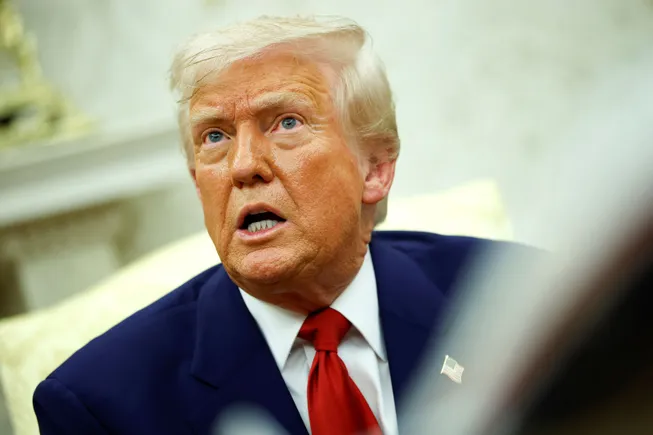Listen to the article
President Trump on Tuesday said his administration would try to address one of the pharmaceutical industry’s biggest complaints with the Inflation Reduction Act of 2022.
In a wide-ranging executive order, Trump directed HHS Secretary Robert F. Kennedy Jr. to work with Congress to modify a portion of the law that differentiates between small molecule drugs and biologic medicines for purposes of Medicare price negotiations. Currently, pills and tablets are eligible for negotiations four years earlier than large molecule biologics.
The pharmaceutical industry describes the difference as the “pill penalty” and argues that it is hurting innovation and will end up costing consumers more. The leading industry trade group says early-stage funding for small molecule research has dropped almost 70% since the law was introduced.
“This discrepancy threatens to distort innovation by pushing investment towards expensive biological products, which are often indicated to treat rarer diseases, and away from small molecule prescription drugs, which are generally cheaper and treat large patient populations,” Trump said in the order.
Currently, a small molecule drug becomes eligible for government-negotiated prices nine years after approval, compared with 13 for biologics. While Trump’s order only directs Kennedy to work with Congress to “align” the treatment of the different medicines, the industry is hopeful that would mean pushing back the timeline for pills to 13 years, closer to the expected end of patent protection.
There are likely to be receptive lawmakers to Trump’s push on both sides of the aisle. Three congressmen from North Carolina, a major research hub, in February introduced legislation to address the issue, which garnered interest in the Senate as well. They cited a University of Chicago paper that predicted 188 fewer small-molecule medicines would reach the market as a result of the disparity.
Trump’s support for changing the law “comes as a clear win for the industry,” Stifel analyst Paul Matteis said in a note to clients. “The caveat is that things still need to actually happen, and there’s always the risk that this could open up a broader conversation on drug pricing that could skew negative.”
The executive order also calls for new guidance on how Medicare price negotiations will work, building on a promise in January to “improve” the program. Former Food and Drug Administrator Scott Gottlieb, who served in Trump’s first term, suggested that may mean a focus on net drug prices, extracting bigger discounts on drugs that offer high rebates.
Trump’s order touched on a number of other areas involving prescription drug costs as well, with few details. Trump instructed Kennedy to work to reduce costs for seniors, consider aligning Medicare payments with hospital acquisition prices and accelerate competition for high-cost medicines. He also took aim at pharmacy benefit managers and called for more prescription imports from other countries.
The executive order also asks Kennedy to look at whether Medicare payment policies could be incentivizing providers to administer drugs in pricier hospital outpatient departments instead of cheaper physician office settings. The hospital industry opposes such ‘site neutral’ policies — meant to equalize payments between sites of care — as hospitals argue outpatient departments incur higher costs. However, site neutrality is broadly supported by other healthcare stakeholders and has been a focus of recent congressional hearings on lowering healthcare costs.
Finally, Trump said his administration would combat anti-competitive practices in the pharmaceutical industry. Still, it’s unlikely those efforts would match the level of scrutiny former President Biden’s administration undertook on antitrust issues.
Rebecca Pifer contributed reporting.


